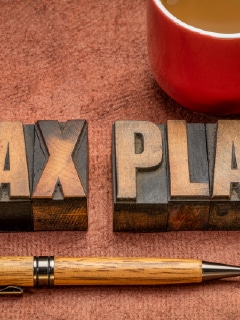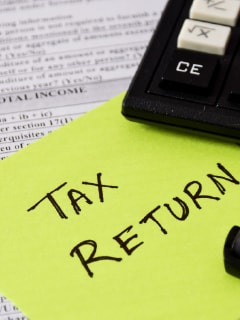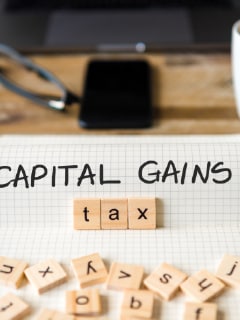CKYC Registry
-
Customer Service Contact us Service request Locate a branch
Find all the help you need
Scan the QR, get our app, and find help on your fingertips

Help CenterSupport topics, Contact us, FAQs and more
-
Login
Are you ready for an upgrade?
Login to the new experience with best features and services
-
Login
Are you ready for an upgrade?
Login to the new experience with best features and services
- Accounts
-
Deposits
IDFC FIRST Bank Deposits
View all Deposits -
Loans
IDFC FIRST Bank Loans
View all Loans - Wealth & Insure
-
Payments
IDFC FIRST Bank Payments
View all Payments -
Cards
IDFC FIRST Bank Cards
View all Cards - Blogs
- Corporate Account
-
Cash Management Services
IDFC FIRST Bank Cash Management Services
View all Cash Management Services - Supply Chain Finance
-
Corporate Lending
IDFC FIRST Bank Lending
View all -
Treasury
IDFC FIRST Bank Treasury
See more details - NBFC Financing
Support topics, Contact us, FAQs and more
- IDFC FIRST Bank Accounts
-
Savings Account
-
Corporate Salary
Account -
Senior Citizens
Savings Account -
First Power
Account -
Current Account
-
NRI Savings
Account -
TASC Institutional
Account -
Savings Account
Interest Calculator
- IDFC FIRST Bank Deposits
-
Fixed Deposit
-
Recurring Deposit
-
NRI Fixed Deposit
-
Safe Deposit Locker
-
FD Calculator
-
RD Calculator
- IDFC FIRST Bank Loans
-
Personal Loan
-
Consumer Durable
Loan -
Home Loan
-
Business Loan
-
Professional Loan
-
Education Loan
-
New Car Loan
-
Pre-owned Car Loan
-
Two Wheeler Loan
-
Pre-owned Two
Wheeler Loan -
Commercial Vehicle
Loan -
Gold Loan
-
Loan Against Property
-
Loan Against Securities
-
Easy Buy EMI card
-
Personal Loan
EMI Calculator -
Education Loan
EMI Calculator -
Home Loan
EMI Calculator -
EMI Calculator
-
Personal Loan Eligibility Calculator
- IDFC FIRST Bank Wealth & Insure
-
FIRST Select
-
FIRST Wealth
-
FIRST Private
-
Mutual Funds
-
Sovereign Gold Bond
-
Demat Account
-
Term Insurance
-
Life Insurance
-
Health Insurance
-
General Insurance
-
Bonds
-
Loan Against
Securities -
Portfolio Management
Service
- IDFC FIRST Bank Payments
-
FASTag
-
Credit Card
Bill Payments -
UPI
-
Funds Transfer
-
Forex Services
-
Pay Loan EMI
- IDFC FIRST Bank Cards
-
Ashva :
Metal Credit Card -
Mayura :
Metal Credit Card -
FIRST Millennia
Credit Card -
FIRST Classic
Credit Card -
FIRST Select
Credit Card -
FIRST Wealth
Credit Card -
FIRST WOW!
Credit Card -
Deals
-
Debit Cards
-
Co-branded Cards
-
Credit Card
EMI Calculator -
FIRST Corporate
Credit Card -
FIRST Purchase
Credit Card -
FIRST Business
Credit Card
- Premium Metal Credit Cards
-
AshvaLifestyle1% Forex₹2,999
-
MayuraLifestyleZero Forex₹5,999
-
FIRST PrivateInvite Only
- Best for travellers
-
MayuraZero ForexMetal₹5,999
-
Ashva1% ForexMetal₹2,999
-
FIRST WOW!Zero ForexTravelLifetime Free
-
FIRST SWYPTravel OffersEMI₹499
-
FIRST Select1.99% ForexLifestyleLifetime Free
-
FIRST Wealth1.5% ForexLifestyleLifetime Free
-
Club VistaraTravelLifestyle₹4,999
-
IndiGo IDFC FIRST Dual Credit CardTravelLifestyle₹4,999
- Max benefits, Free for life
-
FIRST Classic10X RewardsShoppingNever Expiring Rewards
-
FIRST Millennia10X RewardsShoppingNever Expiring Rewards
-
FIRST Select10X RewardsLifestyle1.99% Forex
-
FIRST Wealth10X RewardsLifestyle1.5% Forex
-
FIRST WOW!RewardsTravelZero Forex
-
LIC ClassicRewardsInsuranceShopping
-
LIC SelectRewardsInsuranceShopping
- Reward Multipliers
-
AshvaLifestyleMetal₹2,999
-
MayuraLifestyleZero Forex₹5,999
-
FIRST ClassicNever Expiring RewardsShoppingLifetime Free
-
FIRST MillenniaNever Expiring RewardsShoppingLifetime Free
-
FIRST SelectNever Expiring RewardsLifestyleLifetime Free
-
FIRST WealthNever Expiring RewardsLifestyleLifetime Free
- Rewards & Credit on UPI
-
FIRST Power+FuelUPI₹499
-
FIRST PowerFuelUPI₹199
-
FIRST EA₹NVirtual1% Cashback₹499
-
FIRST DigitalVirtualUPI₹199
-
IndiGo IDFC FIRST Dual Credit CardUPITravelDual cards
- Fuel and Savings
-
FIRST PowerRewardsUPI₹199
-
FIRST Power+RewardsUPI₹499
-
LIC ClassicRewardsInsuranceShopping
-
LIC SelectRewardsInsuranceShopping
- Express and Flaunt
-
AshvaMetal1% Forex₹2,999
-
MayuraMetalZero Forex₹5,999
-
FIRST SWYPEMIOfferMAX₹499
-
FIRST MillenniaRewardsShoppingLifetime Free
- FD Backed rewarding Credit Cards for all
-
FIRST EA₹NVirtualCashback₹499
-
FIRST WOW!Zero ForexTravelLifetime Free
-
CreditPro Balance TransferTransfer & SaveReduce InterestPay Smartly
- IDFC FIRST Bank NRI Forex Solutions
-
Send money to India-Wire transfer
-
Send money to India-Digitally
-
Send money abroad
-
Max Returns FD (INR)
- IDFC FIRST Bank MSME Accounts
-
Platinum Current
Account -
Gold
Current Account -
Silver Plus
Current Account -
Merchant Multiplier
Account -
Agri Multiplier
Account -
TASC Institutional
Account -
Dynamic Current
Account -
World business
Account -
First Startup
Current Account
- IDFC FIRST Bank Business Loans
-
Business Loan
-
Professional Loan
-
Loan Against Property
-
Business Loan for Women
-
Working Capital Loan
-
Construction Equipment Loan
-
Machinery Loan
-
Healthcare Equipment Loan
- IDFC FIRST Bank Business Solutions
-
Payment Solutions
-
Tax Payments
-
Doorstep Banking
-
Point of Sale (POS)
-
Escrow Accounts
-
NACH
-
Payment Gateway
-
UPI
-
Virtual Accounts
-
As per amendment in the Income Tax Rules, PAN or Aadhaar are to be mandatorily quoted for cash deposit or withdrawal aggregating to Rupees twenty lakhs or more in a FY. Please update your PAN or Aadhaar. Kindly reach out to the Bank’s contact center on 1800 10 888 or visit the nearest IDFC FIRST Bank branch for further queries.
-
-
Most Searched
Sorry!
We couldn’t find ‘’ in our website
Here is what you can do :
- Try checking the spelling and search
- Search from below suggestions instead
- Widen your search & try a more generic keyword
Suggested
Get a Credit Card
Enjoy Zero Charges on All Commonly Used Savings Account Services
Open Account Now

We are all aware of the types of taxes that we pay to the Indian government in various forms. As tax-paying citizens, we contribute to the development of our country by paying direct and indirect taxes. In this article, we discuss a specific type of tax – Tax Collected at Source (TCS) – and address key questions around it.
Who are buyers and sellers?
As TCS is associated with the purchase of goods, let’s begin by defining who a ‘buyer’ and ‘seller’ is. A seller can be any of the following individuals or entities:
· The Central government
· A State government
· A local authority
· A statutory corporation or authority
· A company registered under the Companies Act of 1956.
· A partnership firm
· A cooperative society
· An individual or HUF (Hindu Undivided Family) who is subjected to an audit of accounts under the Income Tax Act for a particular financial year.
READ MORE
A buyer, on the other hand, is defined as an individual who obtains goods or the right to receive goods in any sale or auction. Any of the following individuals or entities can be designated as buyers:
· Public sector companies
· The Central government
· A state government
· The Embassy of High Commission
· The consulate or Trade Representation of a foreign nation
· Clubs such as sports clubs and social clubs
· Where resident buyer utilises such purchase for the purposes of manufacturing, processing or producing articles or things or for the purposes of generation of power (not for trading) and gives this declaration in writing in duplicate
What is the definition of Tax Collected at Source?
Tax Collected at Source is defined as the tax that is collected by the seller from the buyer during the sale of a product. It is meant to be deposited to the relevant tax-collecting authorities such as the government.
The Income Tax department has provided a list of goods on which every seller must collect TCS from the buyer(s) in Section 206C of the Income Tax Act.
When does a seller levy TCS?
The seller levies TCS from the buyer at a particular stage of the sale of the product. A seller collects TCS in the following situations.
· When the seller debits the money payable by the buyer in the books of accounts.
· Once the seller receives the money from the buyer in any mode, including cash.
Are certain buyers exempt from TCS?
There are two cases where buyers are exempt from paying TCS:
1. When the goods are meant for personal consumption.
2. When the buyer buys the goods for manufacturing, processing, or production instead of trading them.
Which situations attract a higher TCS rate ?
According to Section 206CCA of the Income Tax Act, TCS will be collected at a higher rate from a buyer in the following situations:
· If the buyer has not filed their IT returns
If the buyer has not filed income tax returns for the last two financial years, they must pay a higher amount as TCS. A higher TCS rate is also applicable when the time limit declared by the Income Tax department to file income tax returns has expired.
· If the TCS and TDS together amount to more than ₹50,000
If in the two financial years preceding the relevant financial year in which TCS needs to be collected, the combined amount of TCS and TDS (Tax Deducted at Source) is more than ₹50,000, a higher TCS rate will be applicable to the buyer.
Both the above situations will be examined together.
FAQs on TCS
Here are answers to some common questions regarding TCS that will give you a better understanding of how it works.
1. Is TCS refundable?
The TCS rules state that the amount paid as TCS can be adjusted against your overall tax liability and can be claimed as an income tax refund.
2. How to check TCS through Form 26AS?
You can access this form directly through the Income Tax department’s site by clicking on the ‘View Form 26AS’ link. The form displays every detail of the sale such as the seller’s details, your details, and the TCS amount.
3. How is TCS calculated?
Let’s understand the calculation of TCS with the example of a customer X. If X was issued an invoice of ₹11,000 on which 1% TCS was charged, then the amount collected will be ₹110. Hence, the total amount to be paid by the customer will be ₹ 11,110.
A TCS certificate is the most important document for a seller to file TCS returns. Every tax collector, i.e. seller, must submit their TCS certificate in Form 27EQ within a fortnight from the date on which the quarterly TCS return is filed. Do note that an additional fee of ₹200 per day must be paid by sellers in the event of failing to file TCS returns by the due date
Disclaimer
The contents of this article/infographic/picture/video are meant solely for information purposes. The contents are generic in nature and for informational purposes only. It is not a substitute for specific advice in your own circumstances. The information is subject to updation, completion, revision, verification and amendment and the same may change materially. The information is not intended for distribution or use by any person in any jurisdiction where such distribution or use would be contrary to law or regulation or would subject IDFC FIRST Bank or its affiliates to any licensing or registration requirements. IDFC FIRST Bank shall not be responsible for any direct/indirect loss or liability incurred by the reader for taking any financial decisions based on the contents and information mentioned. Please consult your financial advisor before making any financial decision.
The features, benefits and offers mentioned in the article are applicable as on the day of publication of this blog and is subject to change without notice. The contents herein are also subject to other product specific terms and conditions and any third party terms and conditions, as applicable. Please refer our website www.idfcfirstbank.com for latest updates.






















